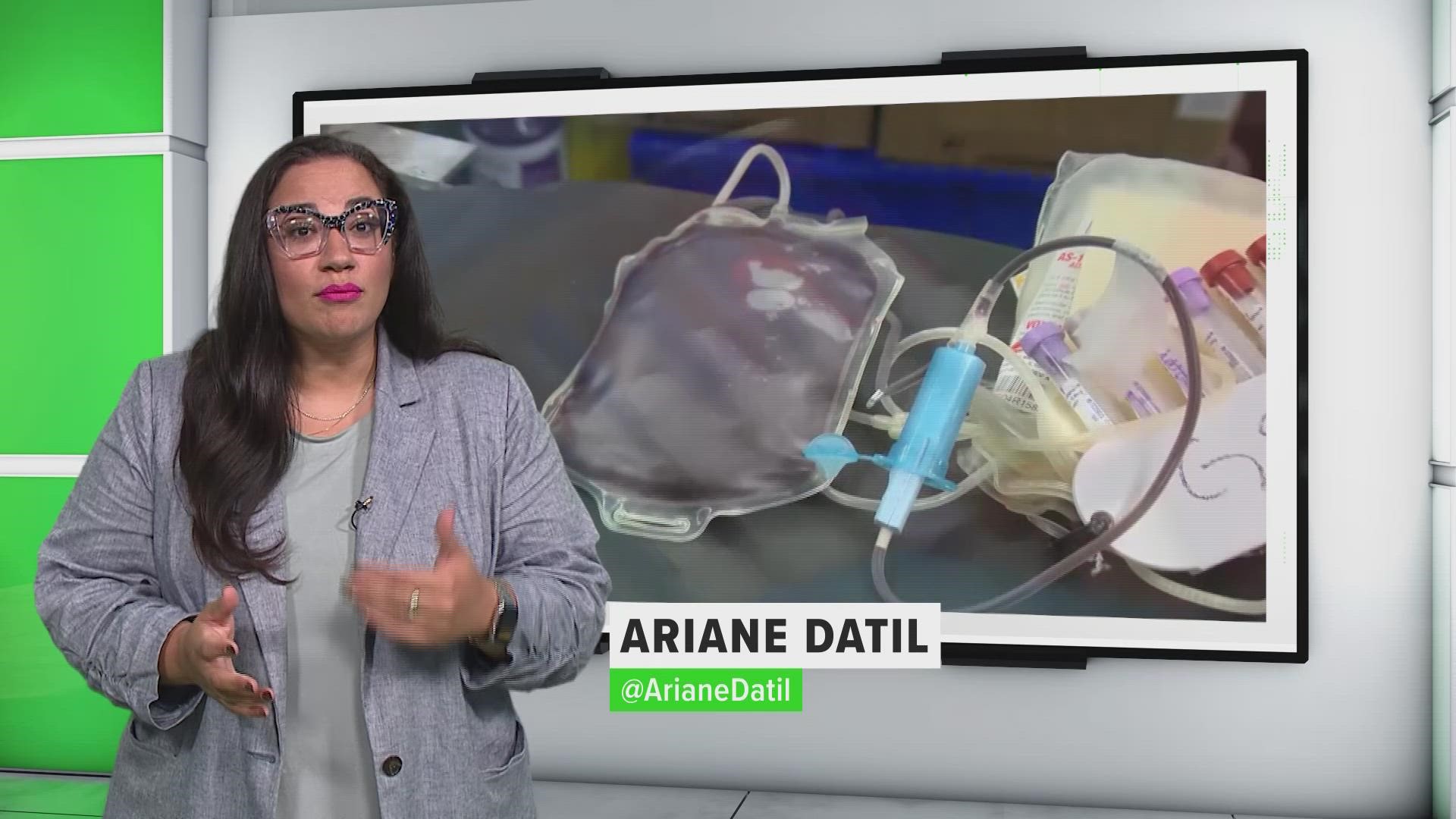There is a nationwide blood and platelet shortage happening across the United States, and some online users and VERIFY readers have asked if there is a shortage because of the COVID-19 vaccines.
According to the Centers for Disease Control and Prevention, 55.4% of Americans had been fully vaccinated against COVID-19 as of Sept. 28.
THE QUESTION
VERIFY viewer Ana S. asked: Is it true that blood supplies are becoming limited due to people receiving coronavirus vaccines?
THE SOURCES
- Angela Broome Powley, regional donor services executive for blood collections at the American Red Cross in the greater Carolinas region
- American Red Cross
- Kate Fry-Cicero, chief executive officer, America’s Blood Centers
THE ANSWER
Angela Broome Powley with the American Red Cross told VERIFY there is a blood shortage, but it’s not because of the COVID-19 vaccine. Anyone, vaccinated or unvaccinated, can donate blood.
WHAT WE FOUND
Angela Broome Powley with the American Red Cross told VERIFY that the COVID-19 pandemic has provided a challenge for blood donation since the start of the pandemic, but factors including staffing shortages, increased demand and virtual work have impacted blood supply, not the vaccine.
According to the Red Cross’ website, in most cases, there’s no blood donation wait time if you receive a COVID-19 vaccine. However, knowing the name of the manufacturer is important in determining your eligibility to donate blood.
The following eligibility guidelines apply to each COVID-19 vaccine received, including second doses:
- There is no wait time for eligible blood donors who have received a COVID-19 vaccine currently authorized in the U.S. including J&J, Moderna and Pfizer.
- Eligible blood donors who do not know what type of COVID-19 vaccine they received must wait two weeks before giving blood.
“We have found that donors have been distracted and we're about 10% lower in our donor turnout than is normal at this time, the lowest numbers we've seen during the fall since 2015,” Broome Powley said. “So we really do need to get the word out to let donors know it's important that they take time to come and give.”
According to a blood supply tracker from America’s Blood Centers, which operates blood collection sites across the U.S. and Canada, as of Sept. 27, 25% of blood centers they operate had a zero to one day supply of blood. Forty-six percent of centers had one to two days worth of blood.
“Ideally, blood centers strive to maintain inventory levels of three or more days to ensure sufficient blood is available to meet routine and emergency needs,” America’s Blood Centers CEO Kate Fry-Cicero told VERIFY in an email.
She provided a bulleted list of reasons the blood supply could be low:
- The displacement of traditional mobile blood drives due to schools, businesses, communities and organizations either closing, moving to virtual, or limiting access to their locations if they have returned on-site;
- The continued challenge of operating under social distancing and masking policies;
- As more and more people are working from home, a decrease in donors presenting at fixed sites and mobile drives;
- Blood center staffing challenges, especially among front-line collections staff;
- Increased hospital demand for blood (approximately 10% higher than the same time last year).
Broome Powley told VERIFY the Red Cross said there are misconceptions about giving blood safely amid the pandemic, but anyone — vaccinated or unvaccinated — has to answer a series of questions about their own health prior to donating, and donors and volunteers still have to wear masks.
“I think what we want people to know is that the need is always there for blood products, that doesn't go away. That doesn't change, and it's safe to give blood right now, we have taken all the necessary precautions to make sure if you're coming to make a blood donation, it's a safe environment,” she said.
“It's a very safe process, and the need is great. The world has changed so much during COVID -- people are working remotely from home, schools, some are still virtual. And so that's changed the dynamics of people's routines. And when people's routines change, they forget about some of the things like giving blood and so we just have to remind folks the importance of giving blood,” she added.

